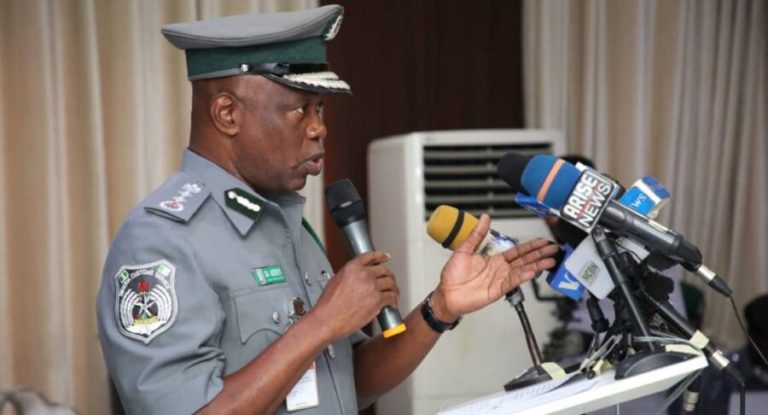Wale Adeniyi, the Comptroller-General of Customs, stated that the service is prepared to execute the Time Release Study (TRS) to streamline cargo clearance and enhance trade in Nigeria.
Adeniyi revealed this at the launch of the World Customs Organisation (WCO)-Assisted Time Release Study in Lagos on Thursday.
He explained that TRS is a globally acknowledged tool devised by the World Customs Organisation to facilitate the clearance process of goods from arrival until their physical release.
Adeniyi mentioned that in 2010, the Nigeria Customs Service (NCS) underwent an extensive TRS facilitated by the USAID MARKETS Project, concentrating on the Apapa Port and Seme Border.
He noted that approximately 20 overarching recommendations emerged, encompassing initiatives such as establishing an Authorized Economic Operator (AEO) program, introducing a single window system, procuring extra cargo handling equipment, and undertaking infrastructure repairs at the ports, among others.
Adeniyi further explained that a second endeavor was made in 2018, albeit unsuccessful, primarily due to inadequate collaboration among the pertinent agencies involved.
- “Today’s exercise builds on the lessons learned from both the 2010 and 2018 attempts.
- “We have made significant progress since then, including the implementation of paperless clearance and advancements in our AEO programmes.
- “Provisions under the new Customs Act now speak to the imposition of penalties to deter non-compliance.
- “Today, we are joining other Customs Administrations in the world that have embraced the tools developed by the World Customs Organisation (WCO) to promote the growth of international trade.
- “The WCO remains steadfast in its commitment to advancing customs procedures through various instruments and tools, such as the Revised Kyoto Convention (RKC) and the World Trade Organisation (WTO) Trade Facilitation Agreement (TFA).
- “Among these initiatives is the Time Release Study (TRS), developed to provide comprehensive insights into customs operations’ efficiency as the TRS in Nigeria, starting with TINCAN ISLAND Port, serving as the pilot location.
- “The TRS method is a systematic and standardised approach used to measure the total duration of time from the arrival of goods at the customs border until their release,” Adeniyi said.
The Comptroller-General elaborated that the TRS initiative marked a pivotal advancement in Customs’ ongoing efforts to enhance both the trading environment and customs operations in Nigeria.
Adeniyi mentioned that to execute TRS, the NCS was implementing the AEO program, Advanced Ruling, and establishing a Customs Laboratory as part of its ongoing initiatives to streamline trade processes and boost government revenue.
More insights
- Mr. Lan Saunders, Secretary-General of WOC, highlighted that TRS, based on WCO methodology, aids Nigeria in complying with WTO’s Trade Facilitation Agreement. It measures and publishes average release times for goods, identifies bottlenecks in trade flow processes, and allows for necessary improvements.
- TRS enables customs, government agencies, and private stakeholders to periodically measure cross-border flow processes for imports, exports, and transit movements.
- According to Saunders, TRS offers various benefits such as enhancing the efficiency of customs administration and government agencies, fostering synergy among stakeholders.
- Additionally, it facilitates the smoother international movement of cargo under different customs regimes.
- Saunders, speaking in a Zoom meeting, also emphasized that TRS improves the country’s global competitiveness and promotes collaboration with stakeholders to enhance supply chain efficiency.
- Another WOC official, Stephen Muller urged Customs to report and publish TRS operations within six months for evaluation.

